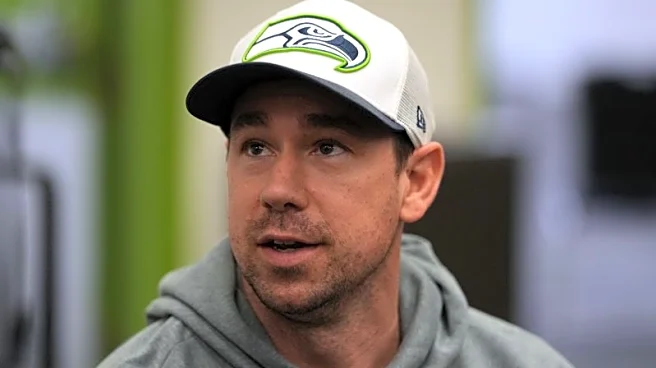Rapid Read • 8 min read
Clayton Lind, a California native with no prior agricultural background, found his life transformed after working as a farmhand in Iowa during the COVID-19 pandemic. His experience in agriculture led him to establish Atlas Media Solutions, a company dedicated to telling the stories of farmers and ranchers. Lind's work aims to bridge the gap between agricultural producers and consumers by highlighting the human aspects of farming. His company not only conducts paid campaigns for agricultural businesses but also engages in pro bono work for nonprofits like Farm Rescue. Lind emphasizes the importance of understanding where food comes from and the practices involved in its production, aiming to address misconceptions and foster respectful dialogue between farmers and consumers.
AD
The initiative taken by Clayton Lind is significant as it addresses a growing disconnect between consumers and the agricultural industry. By focusing on storytelling and humanizing the farming process, Lind's work helps consumers understand the origins of their food and the challenges faced by farmers. This understanding is crucial as the agricultural sector faces issues such as a declining number of farmers and limited land resources. Lind's efforts to improve marketing and communication within the industry could lead to increased consumer awareness and support for sustainable farming practices. This, in turn, could influence public policy and consumer behavior, benefiting both the agricultural community and society at large.
Clayton Lind plans to continue expanding the reach of Atlas Media Solutions, working with more clients across the country to share the stories of farmers and ranchers. As the company grows, it may play a pivotal role in shaping public perceptions of agriculture and influencing consumer choices. Lind's commitment to respectful dialogue and education could lead to greater collaboration between agricultural producers and consumers, potentially impacting policy decisions and market trends. The ongoing support for nonprofits like Farm Rescue also suggests a continued focus on community engagement and social responsibility within the agricultural sector.
Lind's work highlights the ethical and cultural dimensions of agriculture, emphasizing the need for transparency and trust between producers and consumers. By focusing on the human stories behind farming, Lind challenges stereotypes and encourages a more nuanced understanding of the industry. This approach not only benefits farmers by giving them a platform to share their experiences but also empowers consumers to make informed choices about the food they consume. The long-term impact of such initiatives could lead to a more sustainable and equitable food system.
AD
More Stories You Might Enjoy












